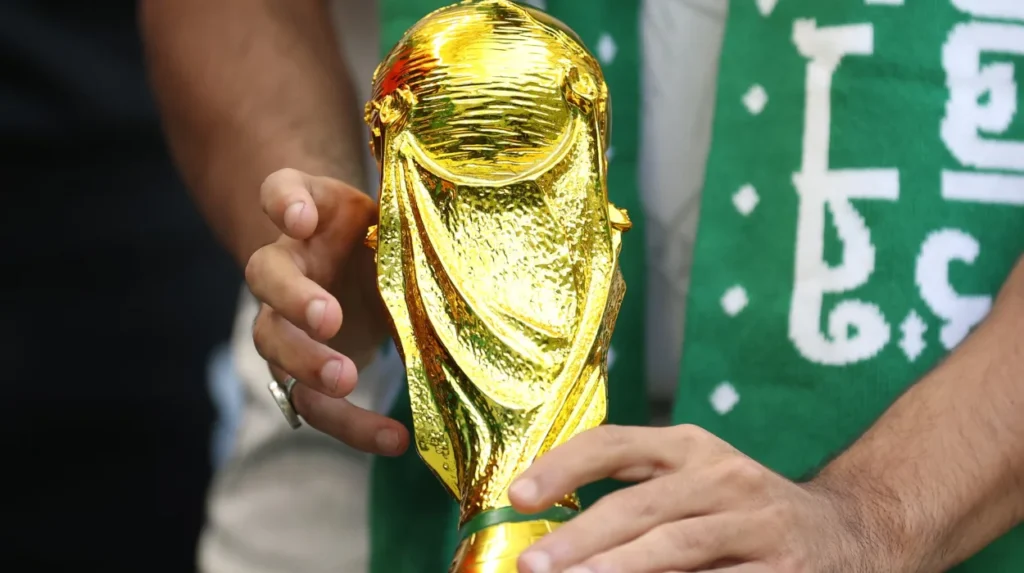International competitions such as the FIFA World Cup are not merely games—they are milestones in a country’s history, indicators of values worldwide, and symbols of human achievement. A successful World Cup is not merely about football; it symbolizes world stories, creates legacies, and presents to the world the face of the host country. It is for this reason that the selection of an adequate host is an international issue. The selection of Saudi Arabia as the host of the 2034 FIFA World Cup has sparked outrage—and rightly so.
Staging an event on the globe’s largest stage takes more than venues and resources. It takes transparency, accountability, ethics, and respect for international human rights. These are strategic event management fundamentals. Saudi Arabia’s poor human rights record, muzzling of the free press, gender imbalance, and history of using sport to sportswash—its polite term is whitening its global image through sport—means it fails the strategic test.
Strategic Event Management: It’s More Than Planning
Strategic event management is not logistical coordination; it’s about making sure that the purpose of the event is in line with stakeholders’ values and expectations citizens, international audience, athletes, or business partner firms. In awarding a country the privilege to host the World Cup, they are entering an implicit agreement with the world: to behave in a manner consistent with the event’s values of fairness, unity, inclusiveness, and excellence.
Saudi Arabia’s institutionalized human rights abuses denigrate all these values. These consist of the suppression of dissidence, discrimination against women, persecution of LGBTQ individuals, no freedom of expression, and judicial system transparency lack which often dispenses harsh punishments randomly without due process. Nothing in the form of air-conditioned stadiums or a billion-dollar budget can make up for the lack of fundamental human dignity.
A Country’s Image is Its Event’s Identity
In event hosting, the international prestige of the host country becomes forever linked to the character of the event. So the World Cup in 2034 will not only be a football tournament—it will also be a stage on which Saudi Arabia will be able to show itself in good light and shift attention away from its crimes. That is exactly why this step is so dangerous.
FIFA’s reputation, already bruised, receives another body blow. Awarding the 2034 World Cup to a nation with this tainted past sends a chilling message: that money and political influence overshadow morality and principle. Strategic misalignment at this scale commodifies the World Cup as a propaganda vehicle instead of a festival of world sport.
Risk Management and Stakeholder Backlash
Risk analysis is part of event management’s building blocks. Strategic planners do not just consider logistics when they review a hosting country, but also social, political, and reputational risk. Saudi Arabia comes with high risks on all fronts.
Stakeholder outrage is inevitable. Sport enthusiasts, players, sponsors, and the global civil society movement are already organizing in protest. An activist-beaten, boycott-tainted, and politicized tournament will not yield the return on investment FIFA is anticipating. Stakeholders and especially sponsors are being held increasingly accountable by customers. Labeling their commercial brands with an oppressive regime puts their credibility at risk.
Strategic Misalignment with Global Values
One of the fundamental learning outcomes of event strategic management is knowledge of how organizational objectives can be incorporated in event planning. FIFA’s mission is fair play, diversity, and inclusion. Saudi Arabia’s policies are completely opposite to those objectives. Having the World Cup there is a further lack of correspondence between event values and the government of its prospective host.
A successful event policy is favored by international public opinion. Saudi Arabia’s hosting the World Cup, however, creates international outrage and disrepute for FIFA and international footballing brotherhood. The choice would be indefensible if stakeholders are examined by event planners.
Lessons of the Past: Sportswashing Is Not New
Saudi Arabia’s bid is part of a wider strategy of utilizing sport as a means of diverting attention from human rights abuses. Formula 1, LIV Golf, and heavyweight boxing have already been enlisted in the charm offensive. But savvy strategic event planners know reputations are constructed on content, not shallow branding.
Conversely, South Africa’s World Cup in 2010 and that of Germany in 2006 were strategically prudent—there, they brought about improvement, integration, and the potential of sports to improve nations. Saudi Arabia wants to use the competition not to demonstrate improvement but to conceal worsening.
The Role of Transparency and Accountability
A second pillar of strategic event management is financial prudence and transparency. FIFA’s choice of Saudi Arabia has been, at best, shady. There was no genuine bid for the World Cup in 2034. Australia—the other serious candidate—pulled out of contention on grounds of impossibility of being able to provide a fair competition. That says it all.
If the bidding process is not transparent, what then of planning and hosting the event? Will the media be free to investigate corruption? Will workers building the infrastructure be accorded international labor rights? The 2022 Qatar World Cup taught us the tragedy of complacency—hundreds of thousands of migrant workers died. Saudi Arabia does not want to learn from those mistakes.
Strategy Must Meet Ethics
The FIFA World Cup is not just an event, but a symbol of oneness, world solidarity, and hope. Strategic event management reminds us that any mega event needs to be framed in harmony with the values of its stakeholders and viewers. Saudi Arabia fails this criterion.
This has nothing to do with politics. This has nothing to do with religion. This has nothing to do with culture. This is about human rights, responsibility, and freedom—values that belong to no nation except our own. Looking ahead to 2034, let us ask: Do we want a World Cup that unites the world—or one that takes shelter behind gold-plated stadiums?

